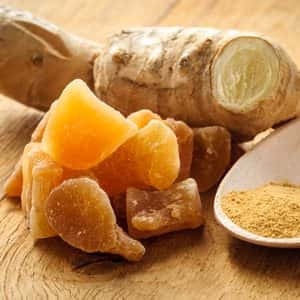
People are still learning about certain remedies that have been popular in many folk traditions. In China, ginger has been part of a healing tradition that can be documented for thousands of years. The Chinese use ginger primarily for seasickness or other causes of nausea or diarrhea. Italian scientists recently reported that a combination of ginger (Zingiber officinalis) and artichoke (Cynara cardunculus) significantly improved symptoms of indigestion (Evidence-Based Complementary and Alternative Medicine, online Apr. 14, 2015).
Occasionally, however, there are individual reactions that can make even a helpful remedy less than desirable. That seems to be what this reader has encountered and is asking about.
Does Candied Ginger Burn Upon Exiting?
Q. I love candied ginger, both its zingy taste and the way it helps settle my gastrointestinal tract. But I have discovered that it has some undesired effects at the other end, similar to too much chili pepper. Is this a common reaction?
A. We don’t know if rectal irritation is a common reaction to ginger. If you are eating enough candied ginger to trigger such a response, however, it is possible that you might be getting a bit too much sugar. Two ounces (36 g) of candied ginger contains 21 g of table sugar. That is what makes it so sweet!
Other Ways to Use Ginger:
Ginger is a time-honored remedy for digestive distress. Ginger tea might be a safer option without the uncomfortable consequences you have described, although you will have to experiment with it to see how you react. Another way to use ginger might be to inhale its aroma (Complementary Therapies in Medicine, Dec., 2015). According to a randomized controlled trial, this intervention can calm the digestive tract. We can’t imagine that it would result in the effects that have troubled you.
According to the trustworthy database of the University of Maryland Medical Center, it is wise not to consume more than 4 g of ginger in any form, fresh, candied or crystallized, in a day. The experts advise caution in combining ginger with anticoagulant drugs, blood pressure pills or medications to control blood sugar.

